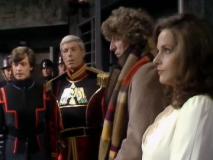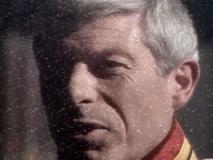BBC Radiophonic Workshop Archive Available to Musicians
The archive of the BBC Radiophonic Workshop will be made available for the first time for use by musical artists and producers, passing on a legacy that helped invent electronic music and sampling.
The Radiophonic Workshop was created in 1957 by the BBC to provide music and audio for Radio and Television. Delia Derbyshire created the original Doctor Who Theme music at the workshop in 1963 working from a score by Ron Grainer. It was responsible for most of the special sounds used in the original series and a sizable chunk of the incidental music. It was closed by the BBC in 1998.
In collaboration with Spitfire Audio and BBC Studios, an unprecedented package of samples will now be released from the Radiophonic Workshop.
From scraping pianos and hitting lampshades to manipulating tape loops with milk bottles, the Workshop's unconventional methods produced a distinctive sonic signature that continues to inspire artists. Its work paved the way for much of the popular music of the 21st century and has been cited as an influence by everyone from Brian Eno to Orbital to Hans Zimmer. The sample library will now be available to musicians and producers, preserving an important musical heritage for generations to come.
Composer, sound designer and Radiophonic Workshop archivist Mark Ayres said:
With exclusive access to the Workshop's archives, tools, and hardware at the legendary Maida Vale Studios, and guidance from Radiophonic Workshop archivist Mark Ayres and other Workshop members, Spitfire Audio has captured the essence of this sonic playground. The library features sounds from the original tapes, as well as new recordings and experiments by Workshop members and associates, including Mark Ayres, Kieron Pepper, Bob Earland, Dick Mills, Paddy Kingsland, Roger Limb, Glynis Jones and Peter Howell.
Mark Ayres said:
I'm the youngest member of the core Radiophonic Workshop – and I'm 64! We're not going to be around forever. It was really important to leave a creative tool, inspired by our work, for other people to use going forward. I hope we've made an instrument that will inspire future generations.
This instrument is all formed from the work, processes and equipment that the Workshop created and used. You know, sampling now really looks like sampling then, but with a few more twiddles. I've been saying for years that Workshop composers such as Delia Derbyshire and John Baker were really samplists.
One of its biggest customers was schools programming, where graphs and diagrams came alive in experimental audio – a rich source of inspiration for artists such as Boards of Canada. A new generation was hearing the wonders of an electronic sound that was experimental, but also relatable – built on the manipulation of real sounds.
Mark Ayres said:
Reanimating this legacy, the machines, performances and archive sounds of the BBC Radiophonic Workshop are now available in the first sample-library VST (Virtual Studio Technology) to capture the Workshop’s essence – with unprecedented access to its home of 40 years: London’s Maida Vale studios.
Harry Wilson, Spitfire Audio’s Head of Recording, said:
While the Workshop was a physical place where the artists got their hands and ears dirty, the archive materials will be available in Spitfire Audio’’s Solar engine. Musicians will be able to use modern techniques of bending, stretching and morphing to create something new, as well as having access to a variety of microphones, the EMT turntable and Rogers loudspeakers made especially for the BBC, including the Maida Vale plate and spring reverbs, modular synthesizers, tape machines, EMS Vocoder, Echo chamber, Roland Vocoder SVC-350 and Eventide H-3000. The package is divided into Archive Content, Found Sounds, Junk Percussion, Tape Loops, Synths and a Miscellany.
Dominic Walker, Global Business Director for BBC Studios said:
Key Features include
- Authentic sounds from the BBC Radiophonic Workshop archives.
- Deeply sampled one-shots, loops, and multi-samples.
- New recordings and experiments by Workshop members and associates.
- Spitfire Audio’s powerful SOLAR engine with gate sequencer and vast effects suite.
- Wide range of sounds, including archival content, found sounds, junk percussion, tape loops, and vintage synthesisers.
- 13 different signal chains used for sound capture.
The Spitfire Audio BBC Radiophonic Workshop VST gives musicians and producers a collection of samples that they can use when making their own music. It includes vintage synthesisers, tape loops, found sounds, iconic archives and new performances from Workshop members.
The Spitfire Audio BBC Radiophonic Workshop VST will be available for £149/€179/$199 from 19 February 2025 at http://spitfireaudio.com/bbc-radiophonic-workshop/. An introductory price of £119/€143/$159 is available until 6 March 2025.
















